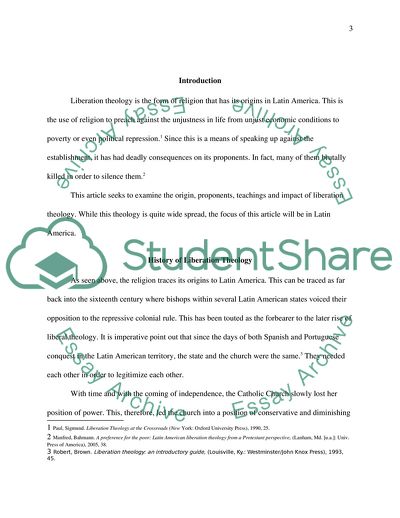Cite this document
(Liberation Theology of Latin America Article Example | Topics and Well Written Essays - 2000 words, n.d.)
Liberation Theology of Latin America Article Example | Topics and Well Written Essays - 2000 words. https://studentshare.org/religion-and-theology/1783237-liberation-theology-of-latin-america
Liberation Theology of Latin America Article Example | Topics and Well Written Essays - 2000 words. https://studentshare.org/religion-and-theology/1783237-liberation-theology-of-latin-america
(Liberation Theology of Latin America Article Example | Topics and Well Written Essays - 2000 Words)
Liberation Theology of Latin America Article Example | Topics and Well Written Essays - 2000 Words. https://studentshare.org/religion-and-theology/1783237-liberation-theology-of-latin-america.
Liberation Theology of Latin America Article Example | Topics and Well Written Essays - 2000 Words. https://studentshare.org/religion-and-theology/1783237-liberation-theology-of-latin-america.
“Liberation Theology of Latin America Article Example | Topics and Well Written Essays - 2000 Words”. https://studentshare.org/religion-and-theology/1783237-liberation-theology-of-latin-america.


